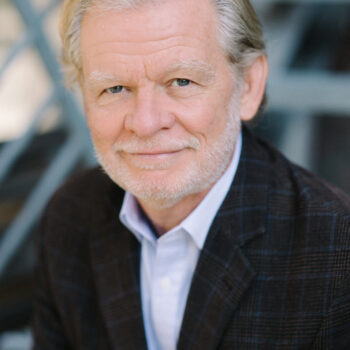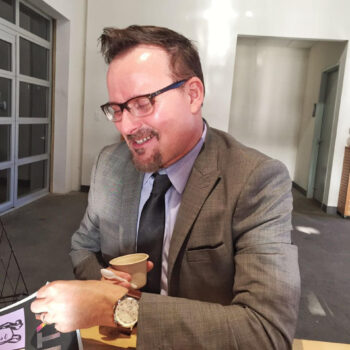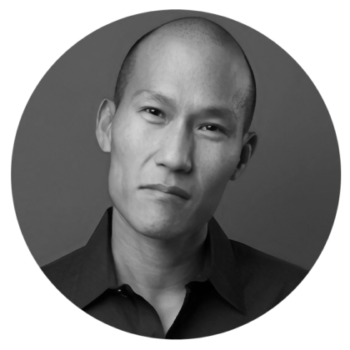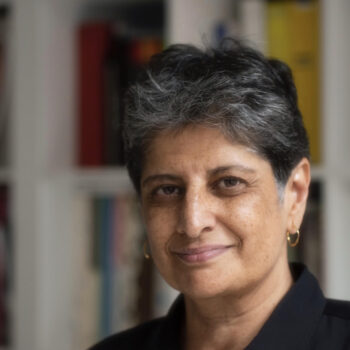Gara LaMarche talks with Jee Kim, Urvashi Vaid, and Bill Vandenberg — activists and organizers who went on to work in key positions in philanthropy — about their experiences navigating the philanthropic sector, what needs to change to shift the balance of power toward organizers, and the relationship between philanthropy and organizing today. The transcript of this interview has been edited and condensed.
Gara LaMarche: Before you went into philanthropy, how did you think about foundations?
Urvashi Vaid: I never thought about going into philanthropy. I was headhunted and persuaded to apply. But my impression of philanthropy was that it was irrelevant to any of the work that I was doing because it was actively homophobic, and I was working in the LGBT movement. Most of the movement was self-funded. It was mostly volunteer. I started working in the late ’70s and ’80s. [Philanthropy] started to turn towards support for LGBTQ rights in the ’90s a little bit and then much more in the 2000s — it is still not adequate. I think one of the first grants that the National Gay and Lesbian Task Force ever got from a foundation was from the Public Welfare Foundation, and we were shocked. They funded our anti-violence work. It was great but unexpected.
GL: And you worked for Mike Edwards [at Ford], right?
UV: I did. I was working at the National Gay and Lesbian Task Force Policy Institute as the think tank director. It was my second stint there because I had worked there before as communications director and then executive director. I left, I wrote a book, I got recruited back to run a think tank, and I loved it. I loved building a real think tank. [It was] my favorite job that I’ve ever had. And a recruiter, Lauren Gumbs, called. I had happened to be on a project with a guy she was dating. He said to her, “You’re recruiting for this job at Ford; you should call Urvashi.” I mean, literally, that’s how it happened. She’d never heard of me; I’d never heard of her.
So she called me and I said, “Lauren, I’m very flattered, but I’m not Ford Foundation material. I’m not corporate. I’ve never worked in an establishment place like that. I work in a movement.” And she said, “He’s looking for a movement person. They’re looking for somebody who comes from a social movement.” And Mike was. She said, “Just go talk to the guy. What do you got to lose?” So I did, and I thought he was really smart and really interesting.
GL: Jee, how’d you get to Surdna?
Jee Kim: Actually, [it was a] very similar set of circumstances. When I was very active in New York in the ’90s, mostly around immigrant rights and racial justice, I was in blissful ignorance of philanthropy. It was all volunteer driven. We worked on campaigns and a broader movement for racial justice in New York, a lot of coalition-building work. I really didn’t think much about foundations. But I was working on a book on youth activism. While I was putting that book together, 9/11 happened, and we put together a response.
GL: Another World is Possible?
JK: Exactly.
GL: [And Surdna] became aware of you.
JK: Yeah. So, [the book] was an attempt to anticipate the crackdowns on civil liberties and to develop a progressive framework around the response to 9/11. And I was driving around the country touring that book to local community groups, local bookstores, when Jeff Chang forwarded me a job description [from] the Surdna foundation, which was hiring for a program officer in youth development and engagement. So there was a window, a sliver of opening for organizing and activism. And I told Jeff, I have no idea about philanthropy, but he said, “Look, the guy who’s hiring, Robert Sherman, is really open minded and wants to bring on a younger person, someone with movement chops.” And so I really fell down a rabbit hole. That became my work for a couple decades following.
GL: Bill, how did you get [to Open Society Foundation]?
Bill Vandenberg: I was an activist in Colorado, moved there after college. It was the time when white evangelicals were trying to take over the state. It was very much contested space. And I did the typical Colorado activist thing for a while, like public-interesty environmentalist stuff, and then I realized the limitations of that. I then co-founded and led a statewide racial and economic justice organization. [It] started out as all volunteers, and my then-partner and I took it on. We shared a three-quarter time paid position. It was very much on a shoestring. We built it over 12 years, and it was an intense experience.
I hadn’t once thought about philanthropy. Philanthropy always seemed to be a closed space. It seemed to be a place where you [had] to have the right last name or the right pedigree, the right type of credentialing. So I never thought it was for me, and it was always mysterious how people got those jobs. Like, where do you get a job [where] you get to give away someone else’s money? I mean, you never think about that when you’re a kid. I wasn’t head hunted, but a couple friends shared the position description with me.
I’d reached a really serious point of burnout [after] running the organization and working for 100 hours a week for 12 years. And then one night at 3:00 am, I updated my resume for the first time in 12 years. And I wrote this cover letter for pure catharsis. I didn’t expect anyone would hire this guy from left field. The first half of the letter was a critique of progressive philanthropy and its lack of transparency, accountability, urgency, [its] lack of willingness to talk about power, let alone blow it up.
The second half of the letter was a critique of what I saw in myself, my own organization, and too many movement partners. I coined the phrase “practicing an overindulgence of well-intentioned mediocrity” and just patting ourselves on the back, fighting the good fight. But ultimately the conditions that we’re all living [in] that are unacceptable aren’t changing. So at 3:00 am, hit the send button and I was like, well, that was fun, like a weight was lifted. I got to [say] my piece and that was it. And maybe now I’ll update my resume and start to look around after 12 years of being a burnt-out ED.
And I was hired by your successor at OSF’s U.S. programs, Gara. Ann [Beeson] is a white, progressive woman who is a movement person and a movement-minded person. And OSF can be a kind of famously elite place, [with] elite strategies, [and an] elite pedigree. I was the grassroots guy on our senior team for the US and [it was] a pretty incredible experience. But [it was] very unlikely for me to end up in philanthropy.
GL: Did it feel strange to be in a relationship of some power over who got money and what strategies got funded? You always seem very self-conscious about it, which is appropriate, but did you decide, well, now I’m in a place where I can actually address some of the things that I’m critiquing?
BV: Yeah, very much. I don’t know if I did it effectively, but it was very much my orientation from the first day I got to OSF. The person whose desk I occupied was someone with whom I had tried for four years to get a response to emails, phone calls, letters, or proposals, and I never received one. And the person’s lovely, but people get busy and sometimes don’t respond. So from that point on, as I built my team, [the] first principle was, can we be accountable and can we respond to people? Can we give direct answers, even if that answer is no? That’s a sign of respect for people, not to keep people hanging and not to do the typical funder thing, which is just send me something and don’t do any extra work. But, of course, people are going to do extra work and send something.
I grew to love it some moments and then other moments, I thought it was like, how could you hate your dream job? Because the contestation wasn’t just about advancing social justice; there’s also all this internal contestation that happens all the time. And your job was a perpetual cycle of strategy review and board meeting preparation. And what is so and so thinking about such and such?
UV: I was just laughing that it’s such an insular cycle of internal strategy development, reviews of applications, and board meeting preparation. That about sums it up fifty percent of the time, at least. But, yes, there is a lot of power in being a donor. Two personal impacts I will note. First, one of the best parts about philanthropy is, it is like going to graduate school with money. They’re putting you through graduate school to learn about social change, and they’re paying you! The second personal impact was that philanthropy changed my class status forever. Working in a grassroots movement, I mean, on a good day I was making $55,000 a year and that was when we weren’t giving back our salary so that the organization could meet its expenses. I thought I was living well but when your salary doubles or even more, as it did, and then you have benefits for the first time, it’s extraordinary and very sobering.
I called Ford’s office the terrarium. It was a self-contained universe in many ways. I went in with an agenda and that was to organize the money so that it would go to places that it wasn’t going. And the places that I really wanted it to go to were grassroots progressive infrastructure and organizations. I approached the internal work as an organizing job, and I did a lot of one-on-ones. I would meet with absolutely anybody to learn. What are you doing? What are you working on? As a result, I feel like I built so many relationships across the Foundation and around the world that I would never have had the opportunity to build..
I will tell a little story about occupying the desk and the power it has to change how people deal with you. I was standing in the hall at the elevator at Ford early on, and this individual who ran a major DC organization, who never gave me the time of day when I worked at the National Gay and Lesbian Task Force, sees me and he goes, “Oh, Urvashi, how are you?” And then he says to the program officer who was standing next to him something like, “Oh, this is my good friend, Urvashi. We’ve known each other for so many years.” It made me laugh. It’s the power of the role, and you have to be responsible about it and acknowledge it. But it was really revealing.
GL: Ford and OSF have evolved in certain ways, but in their lifetimes, they’ve essentially been viewed as progressive institutions, rightly or wrongly. Surdna, I didn’t really think of it quite that way. Jee, it seems like you were more of an outlier in that culture.
JK: Yeah. I resonated very much with what Urvashi said about the class shift. For me, it was tough or bizarre or disconcerting for the class aspect, but also for the cultural aspect. It was akin to when I went from all public education to an Ivy League university and then an elite grad school where I really had to step back and try to understand what was being said behind the words that were being spoken, what the culture was, what the norms were, the visible and invisible incentives of an institution, especially an elite one. That was a really tough translation adjustment for me. As an organizer, I was always looking to how I could expand and get out of that very narrow pigeonhole of the grassroots guy, as Bill put it so well. And that’s a real challenge because you can get very instrumentalized, I think, taking that role. You have to really fight to enter the mainstream of an organization’s theory of change or broader conversation if you are brought in as the grassroots voice.
GL: Were there moments when you felt at some tension with your former allies in the movement as you made decisions? I mean, I can tell you that I felt this. I don’t consider myself an organizer, but I came out of Human Rights Watch and ACLU, and all these relationships and experiences meant that people that I knew wanted something from me. I had spent many, many years working on the death penalty. I developed a strategy that I think moved the ball forward but actually excluded from funding a number of people that we had been allies with because we didn’t really think they were being very effective. It was necessary, but it was hard. Did you have any of those kinds of moments?
UV: I think there’s awkward moments that come up in a funder dynamic. People look at you like you’re an ATM. But then, it’s the nature of the job: if you don’t want to be hit up for money wherever you go, don’t work in philanthropy. It’s like, you’re at a party, somebody is going to talk to you about funding. And that happens a lot. Because I came out of an LGBTQ movement and I wasn’t working on a queer portfolio at Ford — because the foundation did not have a program area on LGBTQ issues — there was less of a direct clash, but I midwifed a lot of people in. In other words, somebody who’s like a total outlier for the area I was supposed to be working on would reach out to me, and I would find a way to facilitate a conversation with a colleague who I thought might be helpful, and I brokered a lot of those kinds of grants. I think that’s how I handled some of my own uneasiness about the role — by being a gate opener and trying to help groups get in the door.
JK: It does require having hard conversations. When you get to any institution, people presume that you’ve discovered the skeleton key and then everyone will be able to walk in through the front door, if not the side door. [I had to be] clear with folks about what I was able to move immediately and [what I was] not able to do. [I also] realized that there was a need for more grassroots social movement funding that I wouldn’t be able to move forward, and so I built other vehicles. I’ve put in a lot of time and effort to help build Solidaire, which I thought was a necessary intervention. [I wanted] to be accountable to an organization, if not a broader community and kept those lines of communication open throughout my time [in philanthropy]. I consult with [organizers] on big decisions because philanthropy does not encourage accountability outside of organizational hierarchy. And I think having a practice of self-developed and enforced accountability is really important.
BV: All of that resonates with me. I approached the job as an organizer and took every call, sometimes missed deadlines because I was taking every call. But it just felt like, this is the most unique opportunity to hear from people that probably do a ridiculous amount of planning for every conversation with someone like me. And I owed it to them to listen and to be accessible. And I also found some of the most interesting, creative, thoughtful perspectives represented in the folks who weren’t the ones that had my boss or people on our board on speed dial. So I thought it was really important to democratize the access. And if I couldn’t be helpful, then at least [I’d] try to make a connection through my network or through other peers in the funding world.
GL: The bigger question underlying this issue is, how do organizers get more money and power? How do we distribute that money through these essentially unaccountable institutions?
UV: If you choose to work inside these institutions, it’s like learning coding: you have to learn the code. And you have to be willing to step into the discomfort, especially when you are making arguments for funds to go to places and people who have not been on the foundation’s radar screen — like progressive or racial justice or radical groups working to realign power.
Within my first six months at Ford, [somebody] took me aside and gave me a book. It was called Power Talk. It was like, how do you use language to be more effective in a workplace? And I’d never read business books in my life. I think this was one of the first business books that I read. And I found it helpful because it was basically saying: without changing the content of what you’re saying, you have to present [it] in a way that can be legible and heard by the people to whom you’re speaking. That’s what we do in organizing. You have to connect. You have a lot of influence if you use it, to move the funds in your direct budget/portfolio but also to inform others who are granting about new directions, groups, and strategies. It is different in smaller and more flexible organizations — my Arcus experience was different than the Ford experience because the donor was much more willing to go in new directions and take some bold action.
The other thing that worked well inside a large and a small institution was humor. I started a Defund Harvard campaign when I was at Ford as a strategy to raise the question of why so many grants [were] going to people at Harvard. When I left, they gave me a nice Harvard t-shirt as a gag gift with a silk-screened X through it, and it said Defund Harvard on the back.
BV: I always felt that since I didn’t really think that I belonged here, I might as well be true to myself and the anti-hierarchical person that is me. I was probably pigeonholed as the grassroots guy, but I’m glad there was a grassroots voice there in many of the conversations. Sometimes it was so tenuous, right? Like if the one board member who really supports the grassroots strategy drank too much coffee at breakfast and left the room [for a bio break] during a particularly important moment during a board meeting, you could lose your strategy. So sometimes it was that tenuous, and I don’t think I’m overstating that. That’s an actual moment. But I think the critical nature of bridging the inside and outside worlds and reminding people on the inside that the local knowledge and the people that are sharing their lived experiences — or should be sharing with us their lived experiences — can help to inform our strategies more than just whatever brief or whatever academic journal we just read.
GL: I think in my days at OSF, the leadership and many of the board members were very comfortable with public interest law. They were very comfortable with think tanks but much less so with power building and organizing. Anybody in the streets, that’s not a good thing; it’s the mob.
BV: There’s such a discomfort, I think, with the anger that exists in our country and around the globe because of inequality, because of discrimination, and comfort with a more polite society advocacy model. I’m really happy that this seems to be dissipating but that comfort level with people that look like us, talk like us — that held us back in a lot of ways.
JK: The three keys that I would try on every lock was the moral argument: basically, it’s the right thing to do. A lot of our language [that] the most affected must lead hinges upon a moral argument, essentially, self-determination. I think that worked for me, to be quite frank, with a lot of white liberal audiences. The second approach that I used, and this was something that I did a lot in my early days at Ford, was a utilitarian argument that this is part of a bigger social change process and you need litigation, advocacy, organizing. The recipe calls for these six ingredients, so you must therefore include the sixth ingredient. And then the last one is the one that we’re all pointing to now [and] that I’ve found to be the rarest, which is the kind of power and social change strategy argument. Where is the distribution of power in society? How do we address that? And that’s, I think, the hardest one to have, and I reserved it for very rare occasions when it seemed like the conditions [were] ripe.
GL: Well, I found myself [at] Atlantic where I had a board that was somewhat skeptical when we moved very heavily in organizing. They knew how the ACLU worked. They didn’t know how ACORN achieved something. And it was because it’s a different process, but if you can engage the cause and effect in some way, with some people, that’s a really important argument.
UV: I’ve been struck, being outside of philanthropy now for a number of years, just how comfortable it was to be in. It was so secure. It was so safe, and risk-taking [was] not particularly encouraged. So if you were inclined not to be a risk taker, you got a lot of props for that. And I think it’s one of the reasons things don’t move as fast as they need to. I mean, do any of us think that foundations have stepped up to meet the COVID challenge? Have the healthcare foundations started to do anything different? Not to my knowledge, but I may just be ignorant. I guess what I’m saying is, I think that it’s a field that just operates at its own pace and pats itself on the back a lot and gets patted on the back a lot by grantees and it’s not really risk [oriented].
GL: Can philanthropy be reformed or should it be blown up? I mean, it is an institution that is a creature of a tax code that privileges rich people to spend their money as they wish while we starve public systems of the necessary resources.
BV: I think there is a shift in a positive direction. The diversification not just of identity but of expertise that is increasingly the reality at institutions large and small within philanthropy, I think is encouraging. I don’t necessarily know if that is consistent with boards and the senior, senior leadership. My sense is it’s probably not. There are many more movement people now in philanthropic jobs and foundation jobs, and I think there [are] because of this moment on race and on the pandemic where foundations did change practices. And it’s really unfortunate that it had to take a pandemic.
The less hopeful side of the coin is in the way that dollars are increasingly moving to organizations and communities through the donor advisor industrial complex, through the funding intermediaries, through the rise of individual donors, and the individual donors in Silicon Valley. You lose the connection to the sustained support of people and movements and organizations.
JK: I call it the second Gilded Age philanthropy, really challenging and casting a very long shadow over the first Gilded Age philanthropy. I agree there [are] definitely positive developments. But as someone who likes to hedge their bets, I think one of the more important hedges to take, especially for organizations with a membership base, is what I think some organizations have done very aggressively, which is to explore revenue and not be as foundation dependent. I think we have to really not just hope for the positive evolution of philanthropy but also solve the problem from multiple angles.
GL: I think that is the way to go. You’re never going to get the revolution funded by the one percent in the way that it needs to be, in the manner that it needs to be, or at the scale it needs to be.




